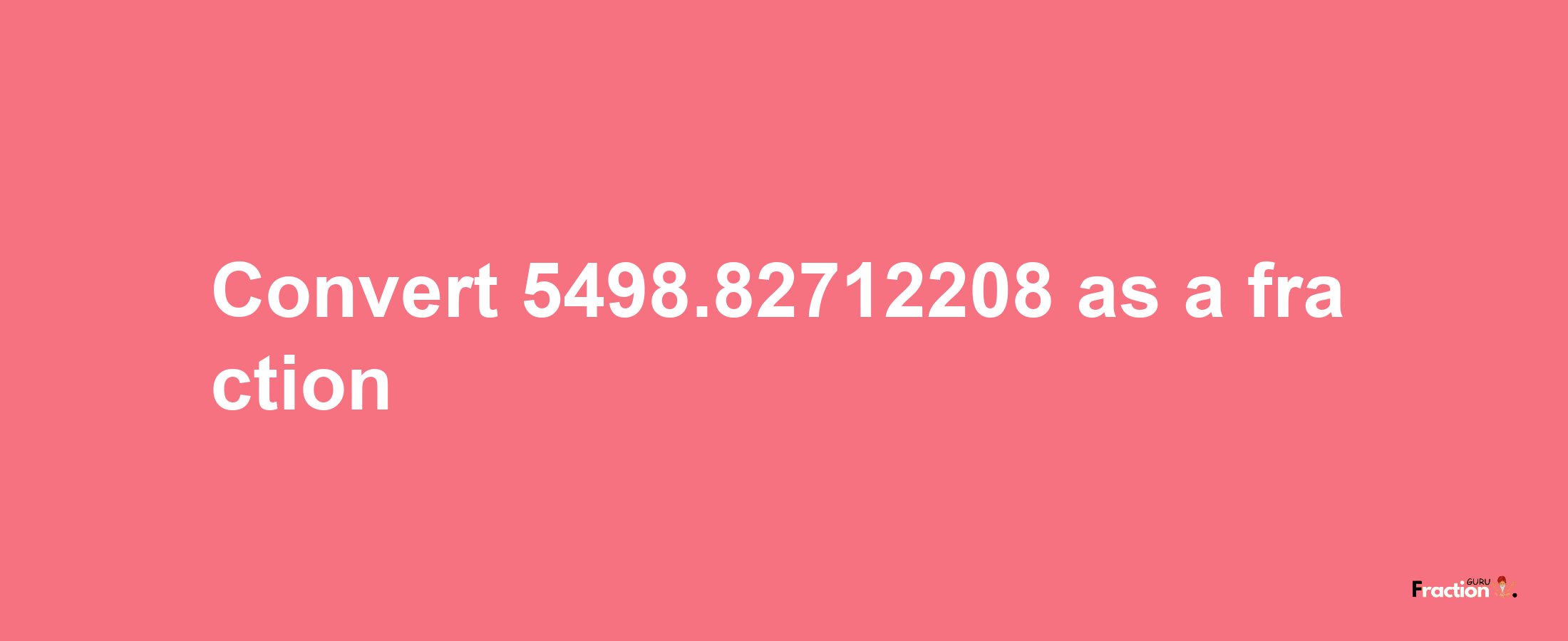Step 1:
The first step to converting 5498.82712208 to a fraction is to re-write 5498.82712208 in the form p/q where p and q are both positive integers. To start with, 5498.82712208 can be written as simply 5498.82712208/1 to technically be written as a fraction.
Step 2:
Next, we will count the number of fractional digits after the decimal point in 5498.82712208, which in this case is 8. For however many digits after the decimal point there are, we will multiply the numerator and denominator of 5498.82712208/1 each by 10 to the power of that many digits. So, in this case, we will multiply the numerator and denominator of 5498.82712208/1 each by 100000000:
Step 3:
Now the last step is to simplify the fraction (if possible) by finding similar factors and cancelling them out, which leads to the following answer for 5498.82712208 as a fraction:
126473/23 / 1


